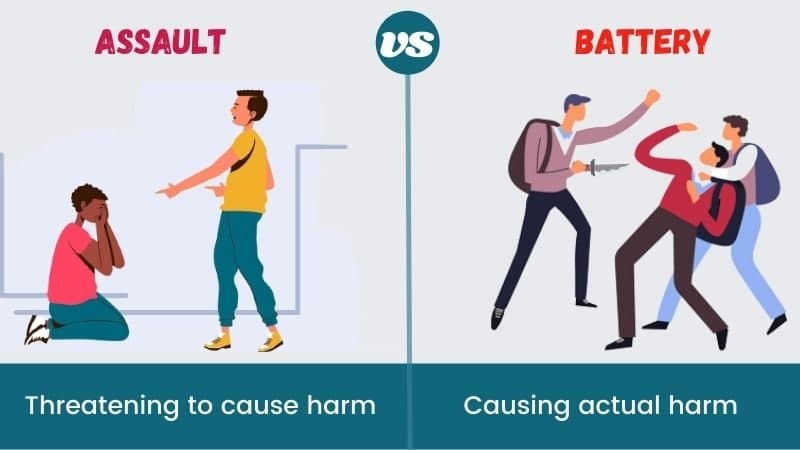Causes and Contributing Factors: Domestic Battery

Domestic battery, a form of intimate partner violence, is a complex issue with multifaceted causes. Understanding these factors is crucial for prevention, intervention, and support for victims.
Substance Abuse
Substance abuse, including alcohol and drug use, can significantly contribute to domestic battery. Intoxication can impair judgment, increase aggression, and lower inhibitions, leading to impulsive and violent behavior. Substance abuse can also exacerbate existing mental health issues, further increasing the risk of violence. Studies have shown a strong correlation between alcohol consumption and domestic violence. For example, a study by the National Institute on Alcohol Abuse and Alcoholism found that alcohol was a factor in approximately 40% of domestic violence incidents.
Mental Health Issues
Mental health conditions, such as depression, anxiety, and personality disorders, can also play a role in domestic battery. Individuals with mental health issues may experience difficulty managing emotions, controlling impulses, and maintaining healthy relationships. Untreated mental health issues can lead to frustration, anger, and aggression, increasing the likelihood of violence. It is important to note that mental illness does not excuse domestic violence, and seeking professional help is essential for both the abuser and the victim.
Relationship Problems
Domestic battery often arises from underlying relationship problems, such as communication breakdowns, jealousy, possessiveness, and control issues. When couples struggle to resolve conflicts constructively, the risk of violence increases. For instance, a lack of healthy communication skills can lead to misunderstandings, resentment, and escalation of conflicts.
Power Dynamics and Control
Domestic battery is often rooted in a desire for power and control over the partner. The abuser may use violence to exert dominance, enforce their will, and maintain control over the victim’s life. This can manifest in various forms, such as controlling the victim’s finances, isolating them from friends and family, and limiting their freedom of movement. The perpetrator may use threats, intimidation, and manipulation to maintain their power.
Cultural Norms and Societal Attitudes
Cultural norms and societal attitudes can influence the prevalence and acceptance of domestic violence. In some cultures, traditional gender roles and beliefs about masculinity may contribute to the normalization of violence against women. Societal attitudes that condone or minimize domestic violence can create a climate where perpetrators feel less likely to face consequences for their actions.
Impact and Consequences

Domestic battery, a form of intimate partner violence, leaves a lasting imprint on the lives of victims, their families, and society at large. The impact of domestic battery extends beyond immediate physical injuries, encompassing a complex web of emotional, psychological, and social consequences that can reverberate for years.
Physical Consequences
The physical consequences of domestic battery can range from minor injuries to severe, life-threatening conditions. Victims may experience:
- Bruises, cuts, and lacerations
- Fractures, dislocations, and sprains
- Internal injuries, such as organ damage or concussions
- Long-term chronic pain and disability
- In some cases, death
The severity of physical injuries can vary depending on the nature of the assault, the perpetrator’s intent, and the victim’s vulnerability.
Emotional and Psychological Consequences, Domestic battery
The emotional and psychological impact of domestic battery can be profound and long-lasting. Victims may experience:
- Fear, anxiety, and depression
- Post-traumatic stress disorder (PTSD)
- Low self-esteem and feelings of worthlessness
- Difficulty trusting others
- Social isolation and withdrawal
- Substance abuse
- Suicidal thoughts and attempts
The emotional trauma of domestic battery can have a devastating impact on a victim’s mental health and overall well-being.
Consequences for Children
Children who witness or experience domestic battery are particularly vulnerable to the long-term effects of this violence. They may experience:
- Emotional and behavioral problems, such as anxiety, depression, and aggression
- Academic difficulties and lower school performance
- Increased risk of engaging in risky behaviors, such as substance abuse and early sexual activity
- Higher likelihood of becoming victims or perpetrators of violence in their own relationships later in life
The trauma of domestic battery can have a profound impact on a child’s development and well-being.
Impact on Community and Society
Domestic battery has a ripple effect on the community and society as a whole. It can:
- Increase healthcare costs, as victims require medical treatment for injuries and mental health services
- Strain social services, as victims seek support from shelters, legal aid, and other resources
- Lead to decreased productivity and economic losses, as victims may be unable to work due to injuries or emotional distress
- Create a climate of fear and distrust, making communities less safe and cohesive
Domestic battery is a serious societal problem that has far-reaching consequences for individuals, families, and communities.